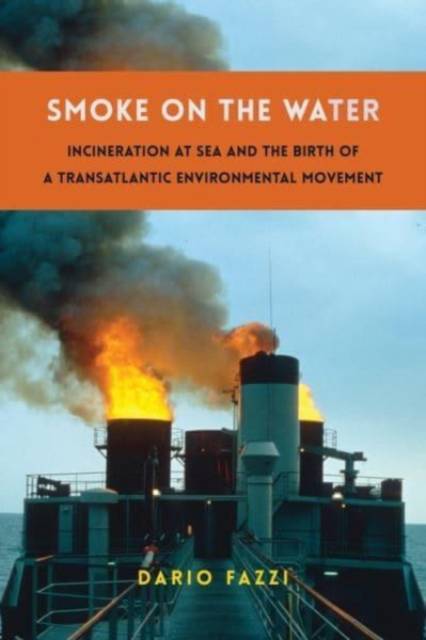
Wil je zeker zijn dat je cadeautjes op tijd onder de kerstboom liggen? Onze winkels ontvangen jou met open armen. Nu met extra openingsuren op zondag!
- Afhalen na 1 uur in een winkel met voorraad
- Gratis thuislevering in België vanaf € 30
- Ruim aanbod met 7 miljoen producten
Wil je zeker zijn dat je cadeautjes op tijd onder de kerstboom liggen? Onze winkels ontvangen jou met open armen. Nu met extra openingsuren op zondag!
- Afhalen na 1 uur in een winkel met voorraad
- Gratis thuislevering in België vanaf € 30
- Ruim aanbod met 7 miljoen producten
Zoeken
Smoke on the Water
Incineration at Sea and the Birth of a Transatlantic Environmental Movement
Dario Fazzi
€ 46,95
+ 93 punten
Uitvoering
Omschrijving
The U.S. government, military, and industry once saw ocean incineration as the safest and most efficient way to dispose of hazardous chemical waste. Beginning in the late 1960s, toxic chemicals such as PCBs and other harmful industrial byproducts were taken out to sea to be destroyed in specially designed ships equipped with high-temperature combustion chambers and smokestacks. But public outcry arose after the environmental and health risks of ocean incineration were exposed, and the practice was banned in the early 1990s.
Smoke on the Water traces the rise and fall of ocean incineration, showing how a transnational environmental movement tested the limits of U.S. political and economic power. Dario Fazzi examines the anti-ocean-incineration movement that emerged on both sides of the Atlantic, arguing that it succeeded by merging local advocacy with international mobilization. He emphasizes the role played at the grassroots level by women, migrant workers, and other underrepresented groups who were at greatest risk. Environmental groups, for their part, gathered and shared evidence about the harms of at-sea incineration, building scientific consensus and influencing international debates. Smoke on the Water tells the compelling story of a campaign against environmental degradation in which people from marginalized communities took on the might of the U.S. military-industrial complex. It offers new insights into the transnational dimensions of environmental regulation, the significance of nonstate actors in international history, and the making of environmental justice movements.Specificaties
Betrokkenen
- Auteur(s):
- Uitgeverij:
Inhoud
- Aantal bladzijden:
- 296
- Taal:
- Engels
- Reeks:
Eigenschappen
- Productcode (EAN):
- 9780231212434
- Verschijningsdatum:
- 31/10/2023
- Uitvoering:
- Paperback
- Formaat:
- Trade paperback (VS)
- Afmetingen:
- 152 mm x 226 mm
- Gewicht:
- 408 g

Alleen bij Standaard Boekhandel
+ 93 punten op je klantenkaart van Standaard Boekhandel
Beoordelingen
We publiceren alleen reviews die voldoen aan de voorwaarden voor reviews. Bekijk onze voorwaarden voor reviews.











